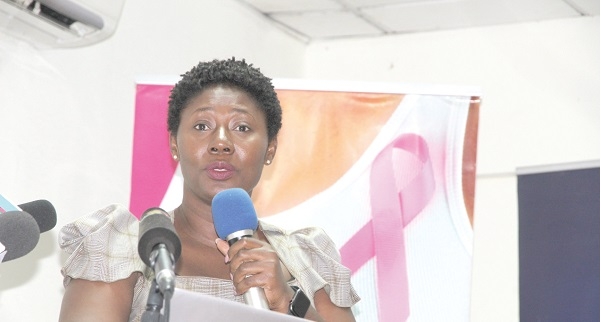Dr. Naa Adorkor Aryeetey, a Senior Specialist in Oncology and Radiotherapy, has brought significant attention to the alarming statistic that half of all cancer patients do not return for additional treatment. In a recent interview with Kwesi Kyei Darkwa (KKD) on CTV’s Master of the Game, she attributed this unfortunate reality largely to financial difficulties and the psychological impact of a cancer diagnosis. Dr. Aryeetey’s insights reflect a broader concern about the challenges faced by individuals battling cancer, with many feeling overwhelmed by the economic burdens and the emotional toll of their conditions.
In defining cancer, Dr. Aryeetey explained that it is characterized by the abnormal growth of cells that have the potential to metastasize or spread to other parts of the body. She differentiated between two main types of cancer: benign, which is non-cancerous and typically does not pose a threat to life, and malignant, which is cancerous and can impact various organs and systems in the body. The oncologist highlighted that breast and cervical cancers are the most frequently diagnosed conditions among women, while prostate cancer remains the leading concern for men. This gender disparity in cancer prevalence underscores the need for tailored awareness and screening initiatives for different populations.
Dr. Aryeetey further emphasized the critical role of early detection in improving cancer treatment outcomes. She encouraged regular self-examinations, advising individuals to monitor their bodies for unusual growths, swellings, or wounds that do not heal. Early identification of symptoms is crucial for timely intervention, potentially improving survival rates. However, she raised concerns about the inadequate cancer screening programs currently available in Ghana, noting that many doctors rely on opportunistic screening during unrelated medical visits rather than systematic, organized efforts.
Highlighting systemic issues, Dr. Aryeetey called for a concerted response to enhance cancer care within the country. She urged the Ghanaian government to follow the World Health Organization’s guideline, which recommends that nations allocate at least 15% of their Gross Domestic Product (GDP) to healthcare. She stressed that healthcare costs are universally high and that Ghana must prioritize investments in this sector to improve access to care for cancer patients. The oncologist’s recommendations underscore the necessity for policy shifts that could translate into better resources and improved outcomes for those affected by cancer.
Dr. Aryeetey’s remarks serve as an urgent call to action for the Ghanaian society to heighten cancer awareness, prioritize early detection, and advocate for increased healthcare funding. The emotional and financial burdens faced by cancer patients necessitate a holistic approach that addresses not only the medical but also the psychosocial challenges of living with cancer. By fostering an environment that promotes regular health check-ups and enhanced screening efforts, it may be possible to mitigate some of the stigma and fear associated with cancer diagnoses.
In summary, Dr. Aryeetey’s insights illuminate the pressing need for effective cancer care strategies in Ghana. Enhancing public awareness, improving access to screening, and ensuring that healthcare funding is prioritized are essential steps towards reducing the impact of cancer on individuals and the broader community. As she suggests, by investing in healthcare and fostering a culture of proactive health management, the goal of increasing survival rates and improving the quality of life for cancer patients can become a reality.


